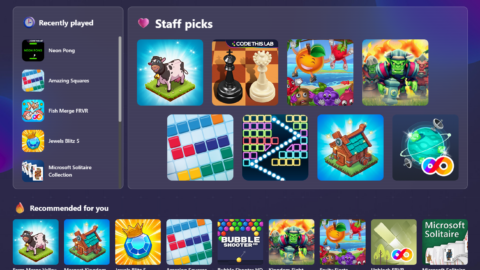Best States for Buying a Used Car
When Washington State resident and self-proclaimed “car guy” Michael Thomas went looking for a replacement for his 2008 Lexus RX 400h in the fall of 2021, he found few options in the Seattle area. “We had a very specific make and model in mind. That, combined with a very tight car market at the time, forced us to expand our search to neighboring states.” Finding your dream car is one reason to consider buying a car out of state. Price may be another. We asked the data scientists behind the scenes at Microsoft Start Autos Marketplace to see if price differences are ever significant enough to consider the added hassle of crossing state lines to find a deal.

The Ground Rules – Methodology
Looking at the US car market as a whole, Start Autos Marketplace listings were anonymously analyzed over a recent three-month period (September through November 2022) to find states with the best and worst overall deals. A “deal” was defined as a lower price for an automobile make, model, year, mileage, and condition, as compared to the national average for a similar car. The Start Autos Marketplace, featuring millions of used car listings, is a one-stop shop for helping busy people find the right car. The analysis of these listings shows that there are indeed states where buyers are more likely to find better deals.

States with the Best and Worst Deals
According to our data, cars in New Jersey are typically listed for sale 7% lower than the national average. The next state to find a great bargain would be Virginia, where they average 4.45% lower. Florida comes in a close second with cars selling 4% lower than the national average. The worst deals are to be found in Alaska and Hawaii, coming in at 9% and 5.5% above the national average, respectively. This may be because of the small number of used cars available for sale in those states. New Mexico rounds out the bottom three states with cars there selling 4% higher than the national average.
Pros
Taking those stats as a guideline, someone in an “average” state, ready to spend $24,000 on a hypothetical 2018 Toyota Camry, might save $1,680 by making the trip to New Jersey. With that kind of savings, you could make a vacation out of a visit to the Garden State, pick up your car, enjoy a leisurely drive home, and still come out ahead. Or maybe a road trip to Utah or Florida makes more sense. Of course, as they say, your mileage may vary. These are averages and price differences will depend upon the particular make and model you are after. That’s where using a tool like Start Autos Marketplace will help you filter through millions of listings nationwide to find a specific model, price, color, year, as well as location.
Cons
Of course, there are added costs and a “hassle factor” when buying a car out of state. Before you buy, make sure that your desired vehicle will pass your state’s emission requirements and can be registered. Also, be sure to figure taxes into the mix – even if you are buying a car in a state without sales tax. That won’t matter when you come back home to register your vehicle. The good news is that states have worked this out and it shouldn’t cost you any more tax-wise than if you had purchased locally. And then there’s the time and the cost of road-tripping back, gas and hotels will certainly drive up the total price tag.
None of those issues were a deterrent to Michael Thomas, our Seattleite from Washington State that ended up purchasing a car some 1,200 miles (about 2,000 km) south in San Diego, California. “We found the exact car we wanted. The scenic drive north was just an added bonus!” Michael’s advice to those expanding their car search beyond their local zip codes is to do their research, “With the help of the internet, finding a used car for sale in a different state is easy. At the end of the day, it’s a great adventure.” To some people that sounds scary. But to others, that just sounds like fun.
Start Autos Marketplace brings together the key features buyers leverage most frequently in an elegant, easy-to-use interface, placing the power and data in the hands of the shopper.








